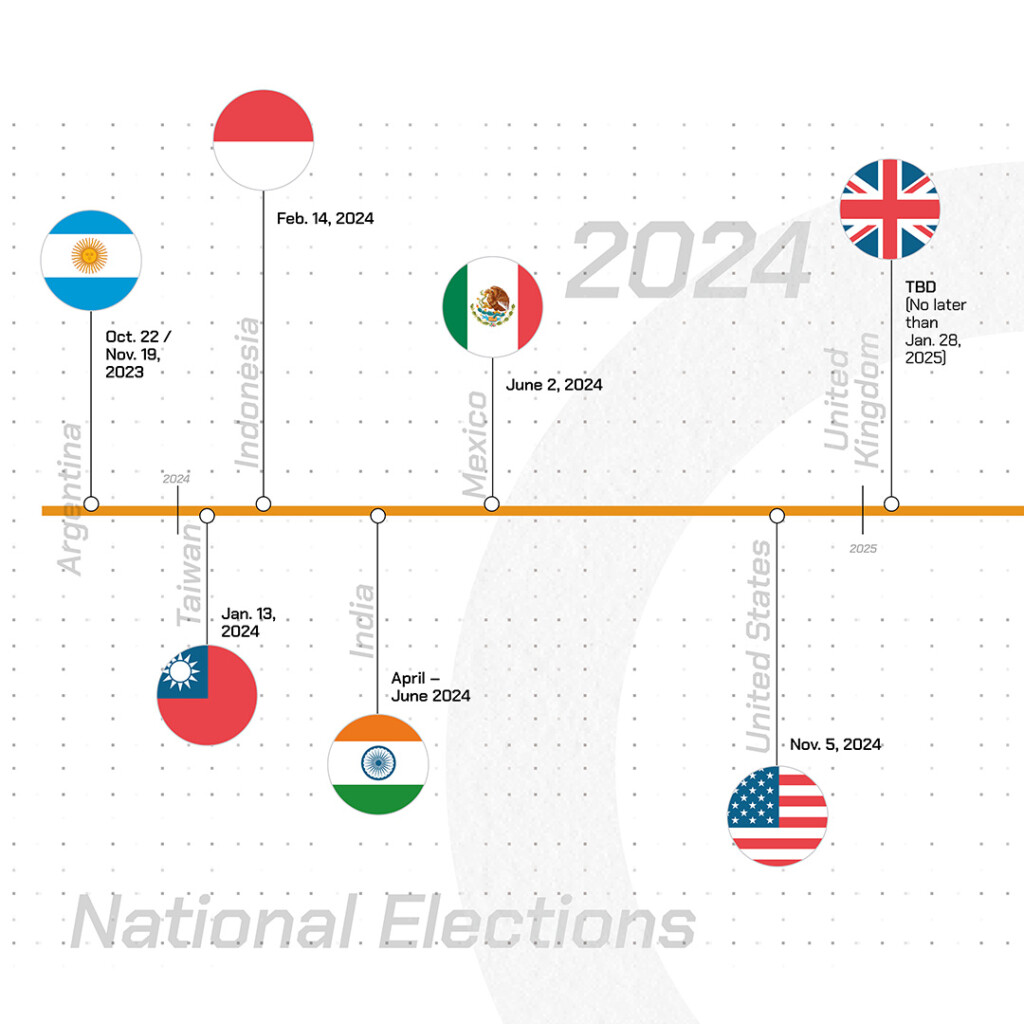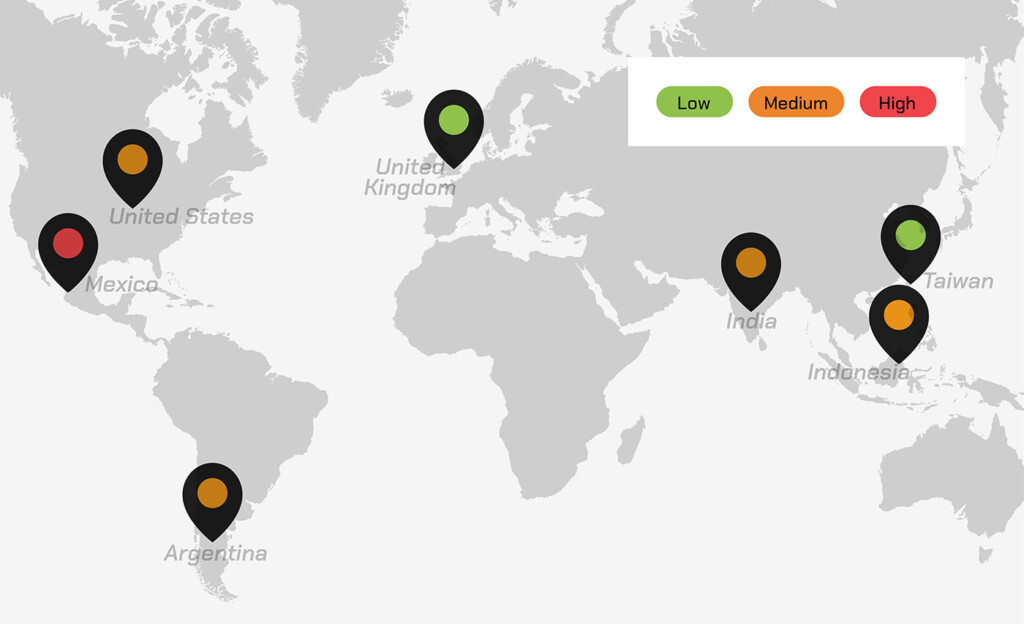India is among the record 64 countries holding elections in 2024. Half the world’s population votes this year in an unprecedented number of global elections. Supply chains in India, the United States, Mexico, Taiwan, Indonesia, and the United Kingdom are all at high risk for election-related disruption. Here, we take a closer look at the potential risks from India’s elections this spring.

Figure 1: Major countries that recently held or will hold national elections during 2024.
Commodities risk for India’s supply chain
Candidates in both India and Indonesia have promised to employ trade protectionism once in office to appeal to key voting blocs. Indian President Narendra Modi and the likely Indonesian president-elect Prabowo Subianto have both committed to continuing controversial trade restrictions on key commodities.
A key voting issue in India is the rising cost of staple foods, which has increased food insecurity nationwide. In October 2023, the Modi administration announced the extension of export controls on sugar to increase domestic supply and deflate prices. As food prices continue to rise, Modi has vowed to continue the export controls through at least the 2024 election, and could extend them even further if inflation worsens.
Modi’s main opponent in India, Mallikarjun Kharge, has criticized the government’s mishandling of the food inflation crisis, but has not commented specifically on the export controls.
These policies have already constrained the global supply of sugar, as India is the world’s second-largest sugar producer. As long as the export control remains in effect, increased global prices and lower supplies are likely to persist.

Figure 2: Risk of disruptions to commodity supply in selected countries amid 2023–2024 elections (source: Everstream Analytics).
Cyber risk for India’s supply chain
While it remains difficult to pinpoint the exact targets cyber criminals or state-sponsored threat actors may choose, important transportation hubs, in particular major seaports or international airports, would be among the most consequential targets for global supply chains. India is a prime target.
In April, 2023, hackers targeted a number of airports in India with distributed denial-of-service (DDoS) attacks. Affected network hubs included airports in Cochin, Delhi, Mumbai, Hyderabad, and Goa.
Here’s an example of how crippling cyber-attacks can be on supply chain infrastructure: Last year, a cyber-attack by Russia-linked ransomware group LockBit 3.0 targeted the Port of Nagoya, Japan’s biggest maritime port. Another attack occurred by an unspecified hacker group on DP World’s terminals in Australia, which handle around 40% of Australia’s sea freight. Both crippled operations out of nowhere and halted the movement of thousands of containers for several days.
Everstream is closely watching for election-related risks including cyber-attacks, border disruptions, and commodity shortages in India and other voting countries in 2024. The world’s supply network closely connects businesses in countries around the world, and catching developments early can prevent widely disruptive consequences for the world’s supply chain networks.
LEARN MORE ABOUT GLOBAL ELECTION RISKS IN 2024: GET THE REPORT